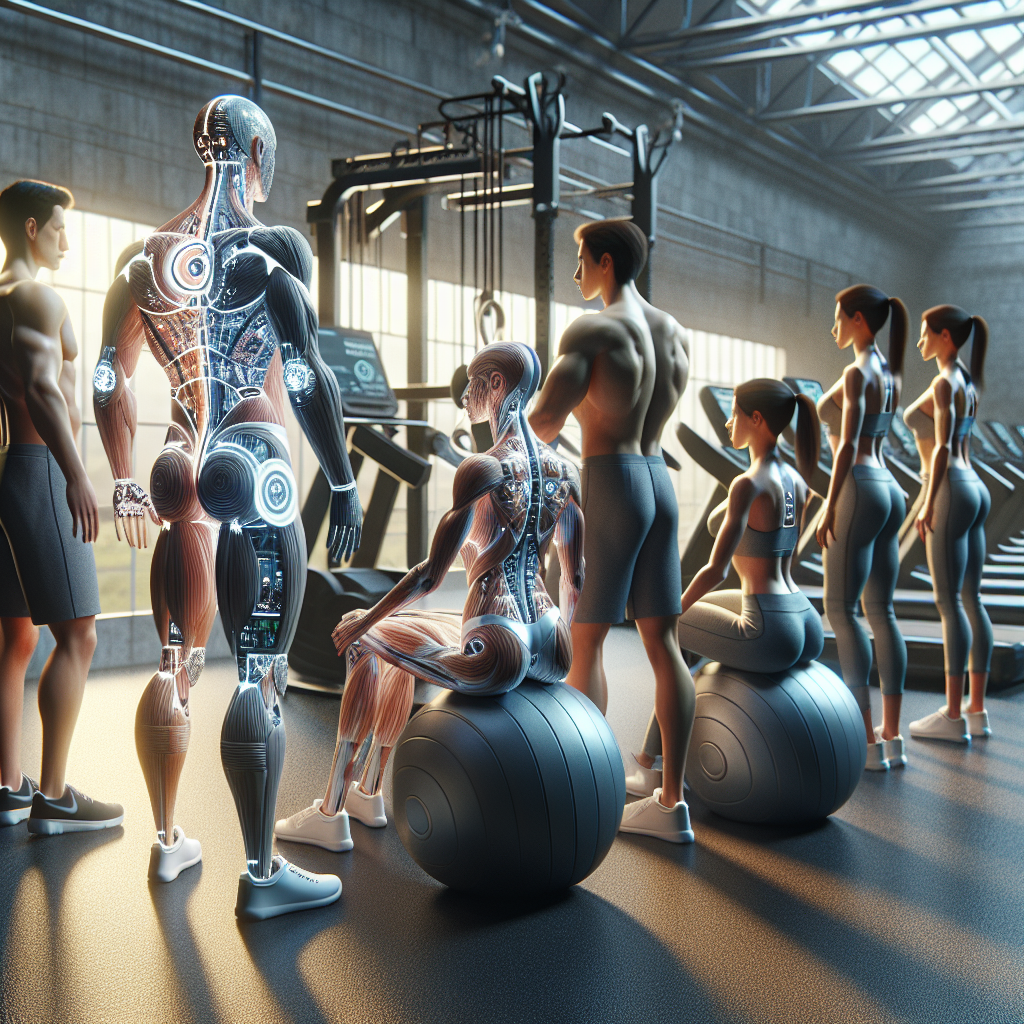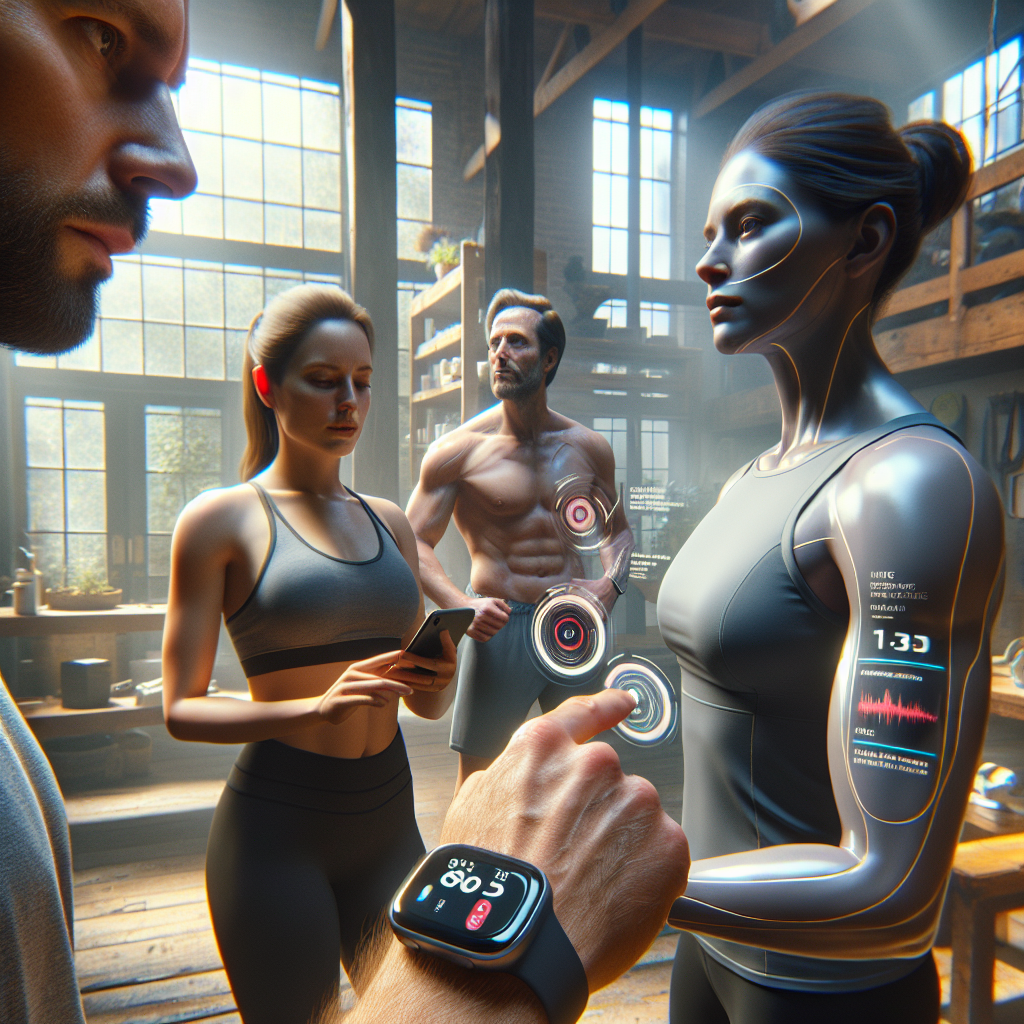Smart fitness devices have revolutionized personal health and exercise habits by providing individuals with real-time data, personalized insights, and motivation to maintain an active lifestyle. These advanced technologies offer a comprehensive approach to tracking physical activity, monitoring vital signs, and setting achievable goals, ultimately enhancing overall wellness and encouraging healthier behaviors. In this article, we explore the multifaceted impact of smart fitness devices on personal health, dissecting how they alter exercise routines, influence mental well-being, and contribute to long-term health outcomes.
The Evolution of Fitness Technology
The journey of fitness technology has come a long way from basic pedometers to sophisticated wearable devices that integrate seamlessly with daily life. The development of smart fitness devices is rooted in technological advancements such as miniaturization of sensors, improvements in battery life, and the rise of mobile computing. These innovations have made it possible for wearables to provide accurate and detailed health metrics.
From Pedometers to Smartwatches
Initially, fitness enthusiasts relied on pedometers to count steps and estimate calories burned. Modern smartwatches and fitness trackers have expanded this functionality significantly. They now include features such as:
- Heart rate monitoring
- GPS tracking
- Sleep analysis
- Caloric intake tracking
- ECG and SpO2 monitoring
These devices collect vast amounts of data, which can be analyzed to provide actionable insights into one’s health.
Integration with Mobile Apps
Smart fitness devices are typically paired with mobile applications, enhancing their functionality and user engagement. These apps allow users to:
- Set personalized goals and track progress
- Receive tailored workout recommendations
- Analyze long-term trends in health metrics
- Connect with online communities for motivation and support
Such integration has made it easier for users to maintain consistency in their fitness routines.
Impact on Personal Health
Smart fitness devices have a substantial impact on personal health, as they promote self-awareness and encourage proactive health management.
Improved Physical Activity Levels
One of the most direct effects of smart fitness devices is the increase in physical activity levels among users. By providing real-time feedback and reminders, these devices motivate individuals to move more throughout the day.
Data-Driven Exercise Routines
With access to detailed data, users can tailor their exercise routines to meet specific fitness goals. For instance, a runner might aim for a certain number of steps or calories burned, while someone focused on strength training might monitor their heart rate zones during workouts.
Case Study: Increased Step Count
| Population | Average Steps Before Device | Average Steps After Device |
|---|---|---|
| General Users | 4,500 steps/day | 7,000 steps/day |
| Fitness Enthusiasts | 8,000 steps/day | 11,000 steps/day |
The data above highlights the significant increase in daily step counts among different user groups, emphasizing the effectiveness of smart fitness devices in promoting physical activity.
Enhanced Health Monitoring
Smart devices empower users by providing critical health insights that were previously accessible only through medical professionals.
Real-Time Health Tracking
- Continuous heart rate monitoring helps detect irregular patterns that could indicate health issues.
- Sleep tracking features allow users to optimize their rest periods, contributing to better overall health.
- SpO2 sensors provide valuable information about blood oxygen levels, crucial for individuals with respiratory conditions.
Early Detection and Prevention
By alerting users to potential health concerns, smart fitness devices enable early intervention, reducing the risk of chronic diseases. For example, consistently high heart rate readings can prompt a user to seek medical advice before the onset of cardiovascular issues.
Influence on Exercise Habits
Beyond health monitoring, smart fitness devices have reshaped exercise habits, making workouts more effective and enjoyable.
Personalized Workout Plans
Many devices offer personalized workout plans based on user data, ensuring that exercise routines are aligned with individual fitness levels and goals.
Adaptive Training Programs
- Programs adjust in real-time based on performance metrics, such as heart rate and calories burned.
- Users receive feedback and suggestions to modify intensity, duration, and type of exercise.
This personalization ensures that workouts remain challenging yet achievable, promoting long-term adherence.
Gamification and Motivation
The gamification of fitness through smart devices plays a crucial role in maintaining user motivation.
Achievements and Challenges
- Users earn badges and awards for reaching milestones, encouraging continued participation.
- Social features allow users to compete with friends, fostering a sense of community and accountability.
These elements transform exercise into an engaging and rewarding experience.
Mental Health and Well-being
The impact of smart fitness devices extends beyond physical health, influencing mental well-being and stress management.
Stress Reduction and Mindfulness
Many devices incorporate features aimed at reducing stress and promoting mindfulness.
Breathing Exercises and Relaxation
- Guided breathing exercises help users manage stress and improve focus.
- Relaxation reminders encourage users to take breaks and recharge during hectic days.
These practices contribute to mental clarity and emotional balance.
Sleep Quality and Recovery
Quality sleep is essential for mental health, and smart devices play a crucial role in optimizing sleep patterns.
Insights into Sleep Stages
- Devices track sleep stages, helping users understand their sleep quality and duration.
- Recommendations for improving sleep habits, such as adjusting bedtime routines, are provided.
Improved sleep enhances cognitive function, mood, and overall well-being.
Challenges and Considerations
While smart fitness devices offer numerous benefits, they also present challenges and considerations for users and developers alike.
Data Privacy and Security
The collection and storage of personal health data raise concerns about privacy and security.
Protecting User Information
- Manufacturers must implement robust security measures to protect sensitive data.
- Users should be aware of data sharing settings and choose trusted apps and devices.
Ensuring data security is crucial to maintaining user trust.
Device Accuracy and Reliability
The accuracy of smart fitness devices can vary, affecting the reliability of the data provided.
Factors Influencing Accuracy
- Device placement and user movement can impact sensor readings.
- Environmental conditions, such as temperature, may also affect performance.
Continuous improvements in technology aim to enhance the precision and reliability of these devices.
The Future of Smart Fitness Devices
As technology continues to evolve, smart fitness devices are expected to become even more integrated into personal health management.
Advancements in AI and Machine Learning
Artificial intelligence and machine learning hold the potential to revolutionize the capabilities of smart fitness devices.
Predictive Analytics and Personalized Health
- AI algorithms can predict health trends and provide personalized recommendations based on user data.
- Devices will become more intuitive, adapting to user preferences and behaviors.
These advancements promise to enhance the precision and personalization of health insights.
Integration with Healthcare Systems
The integration of smart fitness devices with healthcare systems could transform preventive medicine and patient care.
Remote Monitoring and Telehealth
- Devices can transmit real-time data to healthcare providers, facilitating remote monitoring.
- Telehealth consultations can incorporate device data, improving diagnostic accuracy and treatment plans.
This integration has the potential to improve healthcare accessibility and efficiency.
Conclusion
Smart fitness devices have undeniably transformed personal health and exercise habits, offering unique opportunities to improve physical activity levels, monitor health, and enhance mental well-being. While challenges remain, the benefits of these devices are clear, and their continued evolution promises to further revolutionize personal health management. As individuals embrace these technologies, they can look forward to a more informed and proactive approach to health and fitness.
Transform Your Fitness Routine Today!
Join PurelyFit and Let AI Be Your Ultimate Fitness Companion
Discover the power of AI-driven workouts and personalized nutrition plans that adapt to your unique needs. Whether you’re just starting out or have tried everything before, PurelyFit is designed to help you achieve your fitness goals faster and smarter. With over 600,000 recipes tailored to every lifestyle and dietary need, and real-time progress tracking, you’ll stay motivated and on track like never before.











